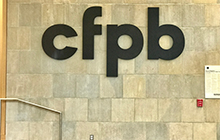On April 24, 2024, the CFPB released its Supervisory Highlights, Mortgage Servicing Edition, (Issue 33, Spring 2024) which provides insight on the CFPB’s current focus in examining mortgage loan servicers. According to the CFPB it “continues to prioritize scrutiny of exploitative illegal fees charged by banks and financial companies, commonly referred to as ‘junk fees.’” This continues the CFPB’s trend of targeting what it calls “junk fees” which in recent months has extended to fees related to mortgage servicing.
The Supervisory Highlights summarize the results of the CFPB’s examinations of mortgage servicers from April 1, 2023 to December 31, 2023. In the Supervisory Highlights, the CFPB claims that “[e]xaminers continue to find supervised mortgage servicers assessing junk fees, including unnecessary property inspection fees and improper late fees” which the CFPB claims are unfair, deceptive, and abusive acts or practices (“UDAAPs”) in violation of 12 U.S.C. §§ 5531 and 5536. The Supervisory Highlights identifies four categories of so-called “junk fees” that the CFPB claims violate UDAAP or other regulations: (1) “unfair charges for property inspections prohibited by investor guidelines”; (2) “unfair late fee overcharges”; (3) “failing to waive existing fees following acceptance of COVID-19 loan modifications”; and (4) “failing to provide adequate description of fees in periodic statements.”
First, the Supervisory Highlights say that mortgage servicers “engaged in unfair acts or practices by charging property inspection fees on Fannie Mae loans where such inspections were prohibited by Fannie Mae guidelines.” According to the CFPB, this occurred for inspections on borrower-or-tenant-occupied properties subject to certain other conditions set forth in the Fannie Mae guidelines. The Supervisory Highlights attributes some of these fees to “automation flaws” but nevertheless assert that charging them amounted to a UDAAP.
Second, the CFPB claims that servicers charged “unauthorized late fees” because (a) “in some instances servicers charged late fees that exceeded the amount allowed in the loan agreement” and (b) “in some instances servicers charged late fees even though consumers had entered into loss mitigation agreements.” According to the CFPB, these “unauthorized late fees” were UDAAPs.
Third, the Supervisory Highlights claim that “in violation of Regulation X” mortgage servicers “failed to waive existing fees after borrowers accepted [streamlined COVID-19] loan modifications.” According to the CFPB, in some instances these modifications require the waiving of existing fees.
Fourth, the CFPB claims that servicers violated Regulation Z by failing “to provide a brief description of certain fees and charges” by using the label “service fee” for “18 different fee types” without including additional descriptions of the purpose of the fees charged. According to the CFPB, “the servicers implemented changes to provide more specific descriptions for each service fee.”
These Supervisory Highlights demonstrate that CFPB supervision is scrutinizing fees that mortgage servicers charge borrowers in furtherance of a Bureau-wide effort to target so-called “junk fees.”

